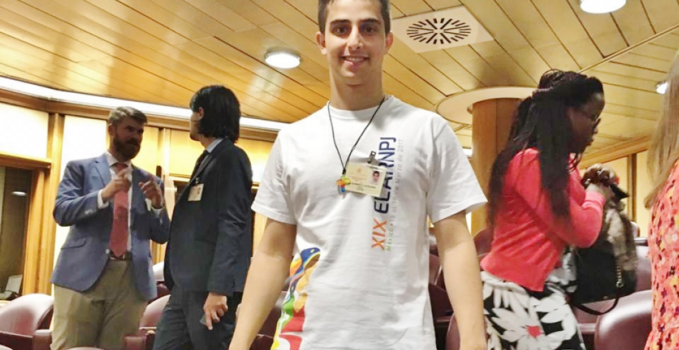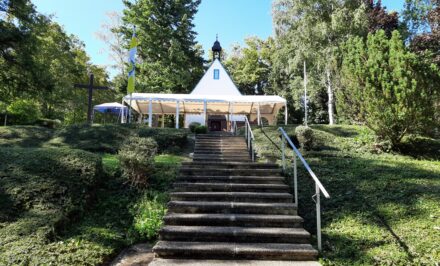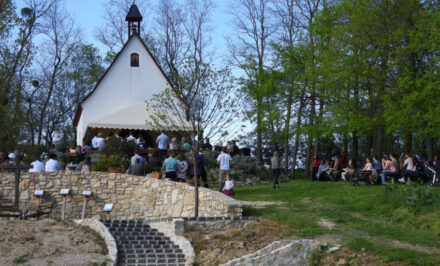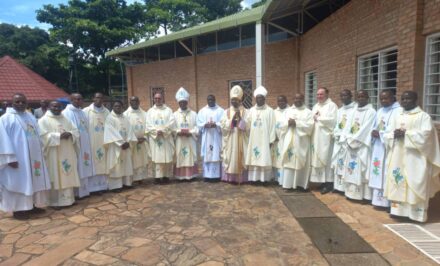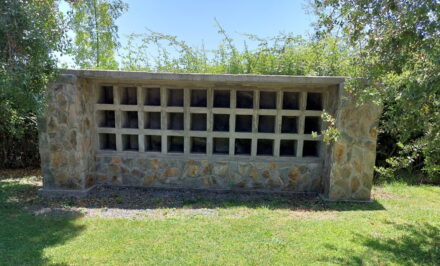Youth Synod, interview with Lucas Galhardo •
One month after the Youth Synod, we asked Lucas Galhardo from the Schoenstatt Boys’ Youth in Brazil, who particpated at the Synod and the preparatory meetings for it, about what these meetings meant for him and which were the most important moments for him, and what needs to happen now so that the Synod does not live only on paper. —
In your video message to the Schoenstatt Family at the end of the Synod, you spoke about how your participation at a Church event left you with a deep feeling of “Dilexit Ecclesiam”. How did you get this impression?
A: Firstly, because the official announcement of the list of Synod participants was made on 15 September, the day we celebrated the death of Fr. Kentenich. But overall, in all the events I attended, I always left with a feeling of gratitude that God placed Schoenstatt in my path because our spirituality has many elements that help to give answers to many of the world’s questions. And what impressed me each time was that, irrespective of how much Fr. Kentenich understood the immensity of the task that God had given him, he always had the full awareness that we are only a small part of a wonderful body called the Church. And, despite everything he went through, especially his exile ordered by the Church itself, he wanted “Dilexit Ecclesiam” (He loved the Church) to be inscribed on his tomb, which I personally believe is a wonderful message that we should take this message as seriously as he lived it.
How can you live, teach, and encourage others to live Diexit Ecclesiam in the Schoenstatt youth?
A: Schoenstatt has a lot to help and offer, sometimes we only need to adapt our language to a specific context, but the spirituality, pedagogy and all the teachings that have been built throughout its history, especially the founder’s teachings, hold a great richness, depth and applicability. I believe that the spirit of a “Schoenstatt that goes out” motivates us to live this love for the Church practically. The experience of the Synod reinforced for me that we are all Church and if we want a more open, welcoming, humble, authentic, creative, etc. Church, we must feel co-responsible in its mission. Therefore, I invite everyone to make themselves available, with humility, within the local Churches where each one wants to contribute. This, first of all, requires a process of personal conversion, being open to listen, enter into dialogue, the differences, and have an open heart to serve joyfully in the best possible way.
What was the most exciting moment of the Synod for you?
A: I didn’t have a single moment that more exciting than another. There were various moments, from tiny details to the big events. The Synod has marked me, as an example of encounter, listening, dialogue, discernment and a true walking together. I believe that it is a great example of a process that would yield very positive results if it was recreated in each person’s local reality.
What, for you, was and is the most important theme discussed at the Synod?
A .: For me the most important theme on “Youth, Faith and Vocational Discernment” is accompaniment, because it is essential for good pastoral work with the youth, for the transmission of faith and vocational discernment. This was the central theme of my 4-minute intervention in the Synod Hall … I asked that in the local realities there be people who are exclusively dedicated to this work, and free from administrative duties. I strongly believe that this is how we will be able to continue living this spirit of synodality, to truly walk together, and thus find increasingly effective ways to face the challenges of each reality.
The Church, and many parts of Schoenstatt as well, prepared intensely for the Synod. Now that it’s over, how will it continue? What should we do to prevent the momentum from being lost?
A: Up until now, the final document is only available in Italian. As soon as the translations are available, I invite everyone to work through them in their own realities. It is a very rich document. But I strongly believe that more than the document itself, one of the great riches of this Synod was the spirituality of synodality that permeated the process as well as the final document, and was especially highlighted in the third part. More than that, in my opinion, synodality should be intrinsic to all Synods; in this Synod it appeared as a special light in everything that was experienced during the Synod and throughout the preparatory process. Synodality is this spirit of walking together, and I believe that this is what we should try to live in our realities. Walk together between bishops, priests and lay people, consecrated religious, young people, adults, etc., promote encounter, dialogue, listening, reflections, discerning together with other faiths and religions, cultures, realities, social classes, etc. It promotes an experience of unity, which is different from uniformity, as Pope Francis has already said. This is what I feel we should try to experience, and the practical forms will depend on each reality, but there also some suggestions: hold assemblies/local synods, involve everyone, especially the youth; pastoral, administrative and consultative activies; promote dialogue with the various groups and charisms in their own reality; practice listening, listen more than speak; exercise discernment as a lifelong adventure; work to find their life’s plan, or personal ideal to use Schoenstatt language, and help others to also find it; etc.
We celebrate the Youth Synod, now what?
A: And, now, let us live the Synod in local realities by working through the final document and primariy, trying to live this spirit of walking together. In the homily during the final Synod Mass, Pope Francis asked three things for us to continue walking together: 1) listen before speaking; 2) make ourselves approachable, accompany others; and 3) witness, go to people, taking not ourselves but rather Christ.
Interview: Maria Fischer, Schoenstatt.org
Original: Portuguese, 01.12.2018. Translation: Sarah-Leah Pimentel, Cape Town, South Africa


